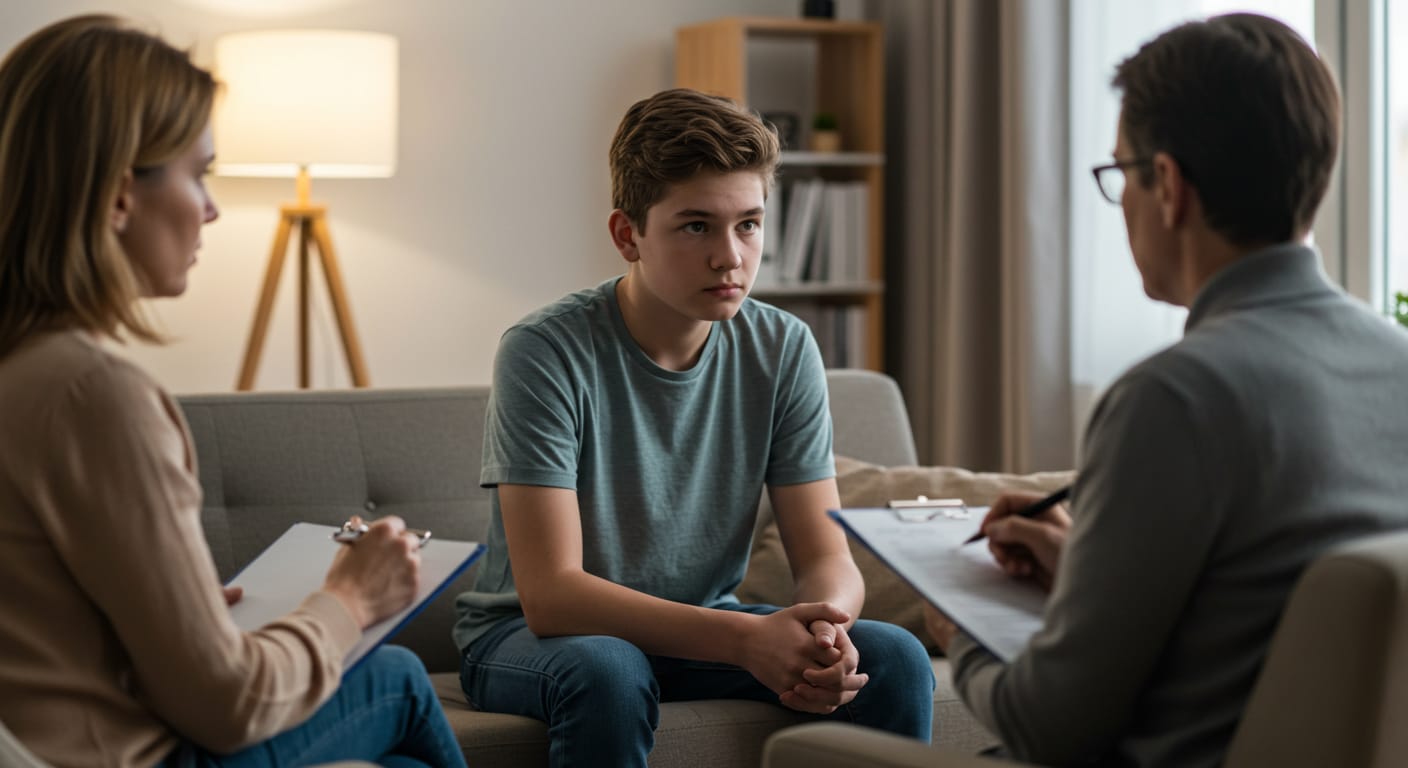Treatment for Major Depression: Resources Are Available
Teenage major depression is a serious mental health condition, but help is available—and treatment can make all the difference.
If left untreated, depression in teens can lead to devastating outcomes. Recognizing the early signs is critical. Watch for:
-
Sleeplessness or excessive sleeping
-
Difficulty in school
-
Withdrawal or isolation from friends and family
If you notice these symptoms in your child, schedule an appointment with a healthcare provider right away. Most often, a pediatrician will refer your child to a psychologist or psychiatrist, who can offer a proper diagnosis and coping strategies.
Understanding Treatment Options
There are several effective treatment methods for teenage major depression. A qualified psychiatrist will guide you in selecting the best approach based on your child’s needs.
Counseling & Group Therapy
One of the most common and helpful treatments is counseling. Many teens find relief by participating in group therapy, where they can talk openly with peers facing similar struggles. These sessions foster emotional support and help them realize they’re not alone.
While the process takes time, consistent counseling is often a crucial first step toward healing.
Medication as a Treatment Option
Antidepressant medications are sometimes prescribed by a psychiatrist or therapist. If medication is suggested:
-
Always ensure parental consent is given
-
Never attempt to treat your teen with natural remedies or over-the-counter products without medical approval
-
Monitor closely for changes, improvements, or side effects
Medication should always be used in conjunction with professional mental health guidance—not as a substitute.
Let’s Talk About Teenage Depression
Major depression is not just a phase—it’s a serious condition characterized by persistent sadness and loss of interest in previously enjoyed activities. It affects approximately 1 in 10 people at some point in their life.
If your child is diagnosed, they will need your support more than ever. You may feel overwhelmed or unsure, but educating yourself about depression will empower you to be a strong, compassionate presence in your teen’s life.
Never ignore warning signs. Don’t wait. Get help now.
Resources and Support
-
Talk to your child’s doctor or school counselor
-
Visit mental health organizations like NAMI (National Alliance on Mental Illness)
-
Refer to the Wikipedia list of National Suicide Crisis Lines for hotlines by region
-
Call the National Suicide Prevention Lifeline (U.S.): 1-800-273-8255, available 24/7
With early intervention, treatment, and ongoing support, your teen can recover, thrive, and rediscover joy in life. You are not alone—and neither are they.



Glad that help is available for kids who need it. I can’t even imagine….
this is a situation that really needs be made aware of for many parents. My friend has a young child who was just diagnosed with depression . . poor little girl. She is so much better now with new meds!!
It is wonderful to know that there are resources like you to share ideas with how to help kids struggling with depression. Treatment is key and can make such a difference.
I hope I don’t ever have to deal with this, but I’m glad to read about it to see if it ever happens what to do! Depression is such a scary subject, but its one that needs to be discussed!
This is really helpful. Counseling alongside medication could definitely be effective ways to help teenagers.
This really helps a lot. With teenage depression (resulting to suicide) on the rise nowadays, this information could save lives.
Unfortunately, too many teenagers are suffering from anxiety and depression. I worry about my kids’ mental health as they reach those important years. Knowing the signs can help.
Depression is a huge thing to deal with as a teenager. I struggled with depression and anxiety and my parents suffered through it with me. I ultimately came out on top, but there’s no real solution, in my mind.
Lauren Harmon, There is no real solution that is why we recommend Parents seek help.
It makes me sad that so many teenagers nowadays are suffering from depression. Glad to know that there is help available for them.
Really important post, Patrice
And so sad that our kids even get depressed, which make is why what you’ve said is so important.
Donna ward,Teens who are depressed need our help as a Parent it is hard to see our child in such condition.
Thanks for sharing this post. We must also understand that maybe, we may even be the ones causing our child their anxiety. We should learn to be sensitive to our child’s feelings and actions and provide them with immediate medical care as necessary.
Annemarie LeBlanc, agrees with you learning to listen to our children.
Thanks for sharing the wisdom and advice about teen depression!
It’s a relief to know that help is out there. Depression may to serious problems, worst suicide.